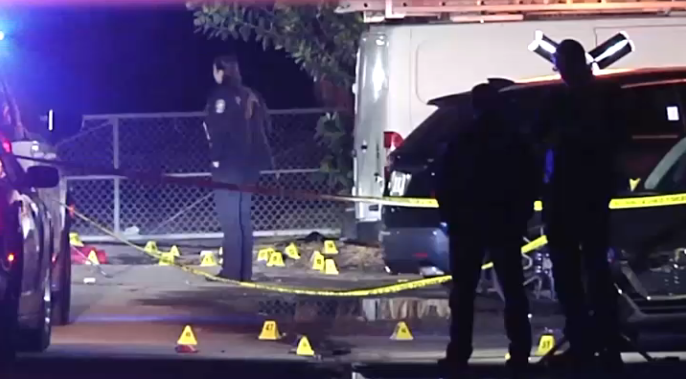An attorney who ignored a Broward County judge's voicemail asking if he would support her reelection tells the NBC6 Investigators he felt intimidated a month later when the judge asked in her courtroom why he had not responded to her call.
A question that could only be answered by the Florida Supreme Court if a complaint ever rises to its level: Did Broward Circuit Judge Stefanie Moon violate judicial canons that forbid, among other things, "campaign activity" in courthouses during court hours?
Watch NBC6 free wherever you are
Judges seeking reelection and their opponents fall under very strict rules about when and how they can campaign, and courthouse facilities are usually off limits.
While judges and candidates cannot directly solicit contributions to their campaigns, they are allowed to recruit a "committee of responsible persons" whose members may seek contributions and manage their expenditures, as well as gather public statements of support for the judge, according to the Florida canons that govern judicial conduct.
Get local news you need to know to start your day with NBC 6's News Headlines newsletter.
So Moon did nothing wrong when she called attorney Michael Jones from her personal cellphone on Friday, Jan. 19, after courthouse hours and left a voicemail saying: "This is Judge Stefanie Moon. I hope you are well. I’m reaching out because I’m putting together my reelection committee and I was wondering if you would agree to serve. If you would kindly return my call, I’d greatly appreciate it."
But Jones did not return her call.
"I didn't have that kind of relationship with Judge Moon and I supported (her opponent) Johnny Weekes," a longtime friend, Jones said in an interview.
Local
So he never responded to Moon – until, a month later, when Moon raised the subject in her courtroom after she dismissed a restraining order case at Jones' client's request.
A court reporter’s audio recording of that Feb. 23 proceeding reveals typical exchanges among the judge, lawyers and parties. The legal discussion ends after Judge Moon says, "The matter is hereby dismissed. I wish you health and safety. Have a good day."
Then her attention turned to Jones.
"Mr. Jones."
“Yes, judge,” Jones replied.
"I left you a message," the judge states, just before the audio recording ends.
Jones recounted to NBC6 what he said happened next.
"I said, 'Yes, judge. You did.' And she asked me why I didn't return the court's call. I hesitated and I said, 'I'd be happy to explain why I didn't return the court's call if we can go sidebar,'" the place in the courtroom where the judge can speak with lawyers without others in the courtroom hearing them. “And she paused as I started to approach. She said, ‘No. Not at this time. That won't be necessary.'"
NBC6 reached out to Judge Moon for her account of what was said after the recording stopped -- offering to follow-up with her after hours when she was outside of the courthouse -- but she said she would have no comment and would not address further questions.
Jones said the exchange left him intimidated and "uncomfortable. Extremely uncomfortable,” so much so he vowed to ask her to recuse herself from any future cases he may have before her.
“Not returning a judge's call who directly looks for your help puts me in a bad situation," Jones said.
A question not clearly answered by a review of the judicial canons and advice from the committee that seeks to explain them: was Judge Moon in violation for not refraining from "inappropriate political activity."
The committee has previously advised judges should “strive to arrange campaign activities to be conducted outside regular courthouse hours."
While it doesn’t clearly define all “campaign activities,” Jones has his opinion:
"Yeah, I would call that a campaign activity. I don't know how else you can look at it," Jones said.
The committee also advised judges not "take a cavalier attitude towards the use of judicial facilities" and Jones noted Moon was in her courtroom when she inquired about his not returning the political call.
But two lawyers who did join Moon’s committee told NBC6 they doubt she would cross the line.
"Judge Moon is one of the most ethical, methodical, thorough judges I’ve ever appeared in front of. Everything in her courtroom is by the book,” said attorney Valerie Small-Williams, adding, “I don’t think her intent was to violate anything."
Moon, a lawyer for 30 years, has been assigned to family court since she was first elected to a six-year term in 2018 after handling both civil and criminal cases as an assistant US attorney and in private practice.
NBC6 spoke to lawyers or reviewed records showing others have had issues with Moon.
One successfully moved for her disqualification after Moon on her own outside of court called and questioned a mental health counselor for a man accused of stalking before that counselor could testify in her court, according to court filings.
Another lawyer repeatedly appeared before Moon to get an injunction dismissed because Moon had ruled against a client who had to appear without his lawyer present, court records show.
The lawyer said she informed Moon’s office she needed to be in a criminal courtroom at that time for what turned out to be the reading of a multi-defendant murder verdict. But Moon proceeded with the case despite her unavoidable absence, ruling against her client, the case file shows.
Weekes said he decided to run against Moon last fall after she declined to postpone an early Monday morning hearing for a half day or more so he could fly back from a weekend lacrosse tournament with his teenage son.
They skipped the lacrosse trip.
“She wanted me in that courtroom, and I was there,” he told NBC6. “And she wasn't. She, in fact, didn't show up until around 11 o'clock."
He and Jones, who also had a hearing in her courtroom that morning, said they were told by Moon’s assistant that the judge was delayed by her own weekend travels.
Weekes said his concerns about her go beyond just the scheduling issue.
"The candor, the respect that's in that courtroom just is not there. And I thought Broward County needed something different,” he said.
Weekes also must be careful how he campaigns, as the Supreme Court has ruled judicial candidates cannot "knowingly misrepresent a fact about an opponent."
“I believe I'm under constraints, but at the same time I'm allowed to tell the truth,” Weekes said. “I'm allowed to say how she's affected my perception of the bench and things that I've seen."
The non-partisan judicial election is set for primary Election Day, August 20.



